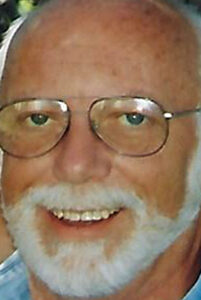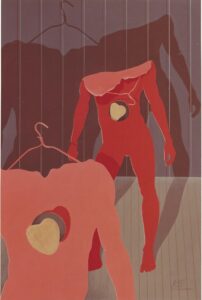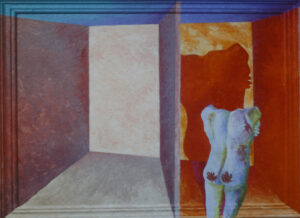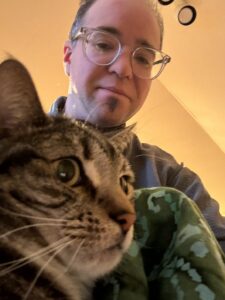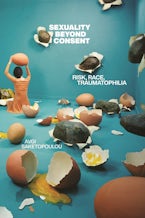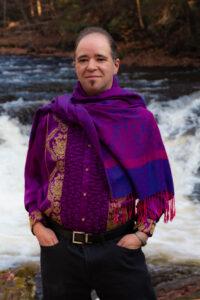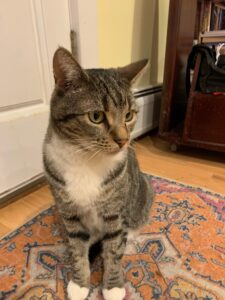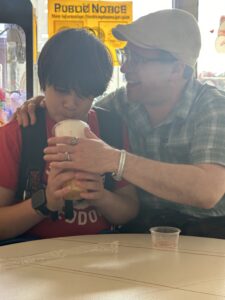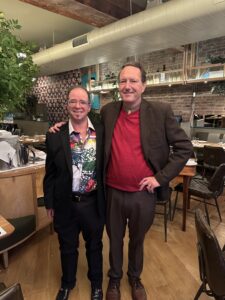Happy cruelest poetry month, April, etc.
Speculative fiction pioneer Samuel R. Delany, who is still going to gay sex parties at age 80, wants you to stop treating the terms “literary fiction” and “high art” as synonymous. One is a genre description, the other is a value judgment. He explains in this 2019 interview with John Plotz at Public Books:
SD: …There’s a reason why the term “science fiction” jelled around 1922.
JP: So that makes Frankenstein not science fiction?
SD: No.
JP: Making The Time Machine not science fiction.
SD: With all due respect, I think that’s a crock of shit. They’re gothic novels. And the gothic novel is a perfectly good and reasonable genre. There’s no point in snatching it out of one genre. The gothic novel has enough problems maintaining its own dignity.
JP: You use the word paraliterary a lot.
SD: The paraliterary genres in the mid-20th century were specifically those that if you asked someone on the street, they would say: That’s not literature. That’s science fiction, westerns, mysteries, comic books, pornography, for example. Now, I think any of those can rise to very high art. The fact that it is a separate genre means that it has its own way of becoming. That there are people who can do something with it, and then there are people who don’t do very much with it.
JP: But the point of the classification would be that, even if someone becomes great in that field, it’s not like they earned the title of literary.
SD: Yes, although there are some writers who have—Theodore Sturgeon, for example, who I think is just one of the great writers of the mid-20th century and whose collected stories create one of the best portraits we have of the world from that time through to the end of the century. And some of it was science fiction, some of it was very borderline science fiction, but it’s a great art. I would much prefer to see him in a Library of America edition than Ursula Le Guin: whom I liked personally very much, but don’t think was anywhere near as interesting a writer.
I agree, it’s weird that no one talks about Sturgeon these days, because he was such a big deal when I was devouring every book in my high school library’s sci-fi section in the 1980s. I recommend his novel More Than Human, about a found-family of people with various paranormal abilities and cognitive impairments who together make up a superhuman gestalt consciousness.
A historian friend sent me this provocative long read from the London Review of Books, “The Shoah after Gaza” by Pankaj Mishra. According to Mishra’s account of post-WWII Jewish identity formation, the first generation after the Holocaust did not want to make this great trauma and humiliation central to their self-understanding as Jews. It was only in the 1970s that Zionists within and outside Israel started to emphasize the Holocaust as a moral trump card to silence criticism of how the Palestinians were treated.
[Israeli Prime Minister Menachem] Begin, who had organised the 1946 bombing of the King David Hotel in Jerusalem in which 91 people were killed, was the first of the frank exponents of Jewish supremacism who continue to rule Israel. He was also the first routinely to invoke Hitler and the Holocaust and the Bible while assaulting Arabs and building settlements in the Occupied Territories. In its early years the state of Israel had an ambivalent relationship with the Shoah and its victims. Israel’s first prime minister, David Ben-Gurion, initially saw Shoah survivors as ‘human debris’, claiming that they had survived only because they had been ‘bad, harsh, egotistic’. It was Ben-Gurion’s rival Begin, a demagogue from Poland, who turned the murder of six million Jews into an intense national preoccupation, and a new basis for Israel’s identity. The Israeli establishment began to produce and disseminate a very particular version of the Shoah that could be used to legitimise a militant and expansionist Zionism.
…Primo Levi, who had known the horrors of Auschwitz…and also felt an emotional affinity to the new Jewish state, quickly organised an open letter of protest and gave an interview in which he said that ‘Israel is rapidly falling into total isolation... We must choke off the impulses towards emotional solidarity with Israel to reason coldly on the mistakes of Israel’s current ruling class. Get rid of that ruling class.’ In several works of fiction and non-fiction, Levi had meditated not only on his time in the death camp and its anguished and insoluble legacy, but also on the ever present threats to human decency and dignity. He was especially incensed by Begin’s exploitation of the Shoah. Two years later, he argued that ‘the centre of gravity of the Jewish world must turn back, must move out of Israel and back into the diaspora.’
Current rhetoric about the uniqueness of the Holocaust, Mishra writes, prevents us from calling the genocide in Gaza by its true name. This is not to deny the unspeakable suffering of the Jews under Nazism, but to question the political uses to which it’s been put. In fact, this very point was made by Jewish critics of ethnic cleansing in Palestine in the 1960s-80s.
In 2024, many more people can see that, when compared with the Jewish victims of Nazism, the countless millions consumed by slavery, the numerous late Victorian holocausts in Asia and Africa, and the nuclear assaults on Hiroshima and Nagasaki are barely remembered. Billions of non-Westerners have been furiously politicised in recent years by the West’s calamitous war on terror, ‘vaccine apartheid’ during the pandemic, and the barefaced hypocrisy over the plight of Ukrainians and Palestinians; they can hardly fail to notice a belligerent version of ‘Holocaust denial’ among the elites of former imperialist countries, who refuse to address their countries’ past of genocidal brutality and plunder and try hard to delegitimise any discussion of this as unhinged ‘wokeness’. Popular West-is-best accounts of totalitarianism continue to ignore the acute descriptions of Nazism (by Jawaharlal Nehru and Aimé Césaire, among other imperial subjects) as the radical ‘twin’ of Western imperialism; they shy away from exploring the obvious connection between the imperial slaughter of natives in the colonies and the genocidal terrors perpetrated against Jews inside Europe.
One of the great dangers today is the hardening of the colour line into a new Maginot Line. For most people outside the West, whose primordial experience of European civilisation was to be brutally colonised by its representatives, the Shoah did not appear as an unprecedented atrocity. Recovering from the ravages of imperialism in their own countries, most non-Western people were in no position to appreciate the magnitude of the horror the radical twin of that imperialism inflicted on Jews in Europe. So when Israel’s leaders compare Hamas to Nazis, and Israeli diplomats wear yellow stars at the UN, their audience is almost exclusively Western. Most of the world doesn’t carry the burden of Christian European guilt over the Shoah, and does not regard the creation of Israel as a moral necessity to absolve the sins of 20th-century Europeans. For more than seven decades now, the argument among the ‘darker peoples’ has remained the same: why should Palestinians be dispossessed and punished for crimes in which only Europeans were complicit? And they can only recoil with disgust from the implicit claim that Israel has the right to slaughter 13,000 children not only as a matter of self-defence but because it is a state born out of the Shoah.
Jewish Currents had an interesting article last month about Israel’s dependence on underpaid Palestinian labor. Jonathan Shamir’s “Between Exclusion and Exploitation” details how the state is balancing competing pressures from security hardliners and Israeli businesses. Give them just enough work permits to keep the economic frustration from boiling over into violence, but not so many that they become an organized labor force who want equal rights. Meanwhile the BBC reports that enterprising Israelis are already planning beachfront resorts in Gaza once it’s cleared of its pesky inhabitants.
For some in the Israeli cabinet, the Palestinian territory – now drenched in blood – is ripe for resettlement. That includes Israel’s hard-right National Security Minister Itamar Ben Gvir – a settler himself.
In late January, he made his way through a packed conference hall, slowed by embraces and handshakes. He was among friends – about 1,000 ultranationalists pushing for a return to Gaza at the event entitled Settlement Brings Security.
Mr Ben Gvir, who favours “encouraging emigration”, was among a dozen cabinet ministers in attendance.
“It’s time to go back home,” he said from the stage, to loud applause. “It’s time to return to the land of Israel. If we don’t want another 7 October, we need to return home and control the land.”
Gill-Peterson finds the psychological approach, which Butler exemplifies, useful but partial. It might explain violence against individual trans women, but it cannot account for why trans misogyny initially arose as a violent instrument of governing. Trans panic began with an assault in colonial and settler states on what was perceived as sexualized femininity in male-bodied people. The psychological phenomenon that motivates individual violence did not precede state violence but followed it… As scholars have demonstrated from a variety of angles, it has been politically and economically expedient throughout history to deem certain populations improperly gendered and sexually corrupt. These designations provided chattel slavery and vulnerable mobile labor for capital and granted states the opportunity to consolidate their sovereignty by unleashing immense violence on these groups. Sylvia Federici’s work, for example, recounts the social, political, and economic losses women experienced with the emergence of early capitalism, which relegated women to unpaid domestic labor. In a similar fashion, Gill-Peterson outlines how the dispossession wrought by slavery and colonialism shunted trans-feminized people of color into cities, where they monetized trans femininity through the service economy and sex work.
